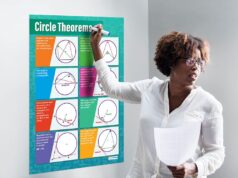
Digital learning has currently become one of the central methods of education. In the wake of the global pandemic, when regular, physical classes are suspended for an uncertain period, digital learning has become the ultimate go-to in terms of obtaining education.
However, there have been doubts regarding the effectiveness of digital learning for the students since its advent. It should be recognized that digital learning is extremely effective in the education of learners.
1. Online Education Prepares the Ground for Future

Students who attend online classes need to develop their knowledge regarding technology. In order to do the classes, they need to know about video conferencing, messaging, collecting study materials and so on.
In this era, when technology is advancing at a great pace, it is important for future professionals to have basic knowledge about the workings of technology.
The use of technology enhances the learners’ sense of developing effective self-directed learning. Digital learning also encourages the critical thinking process and analytical reasoning in the students. It also helps them to develop decision making skills.
In this way, online education is preparing a strong ground on which students can rely for a changing workforce.
2. Online Learning is More Engaging
Based on the current research on online education and the comparison between online and traditional education, it has been found that online education is more engaging than classroom education.
During online education, students interacted much more with the tutors in comparison to the students in the classroom.
Apart from that, in online education tutors can present the study materials in a much interesting manner through multimedia formats, making the presentation more eye-catching for the students. A visual representation and an audio lecture can help accelerate the learning speed of the students.
Moreover, different innovative teaching and learning techniques that are used by the teachers often make the process of learning absolutely organic, as a result of which students often do not even realize that they are formally learning a particular subject.
The tools of active learning such as peer education, teamwork, problem-solving, concept mapping, reverse teaching, storytelling, gamification, role-playing, and staging also make learning fun and exciting.
3. Faster Feedback

Students who take online classes are more in contact with their tutors. In classroom education, students are allowed to ask questions and solve doubts only within the class hours that are a limited period.
However, in online classes, tutors motivate the students to complete more frequent assignments. This helps the tutors to monitor the competence of each student. As mentioned above, online classes usually have fewer students, therefore, it is easier for the tutors to pay greater attention to each student and interact with them more personally.
As the tutor finds out the problematic areas of each student, he/she develops their lectures to address those areas specifically, so that problem is solved from the roots. The students can take help from the teachers anytime they want, just the way they can reach out to TFTH when students are having issues with assignments.
4. Flexible Learning
Digital learning offers great flexibility to both the learners as well as the teachers. For instance, teachers can separate teaching classes from doubt clearing sessions. By separating these two objectives, both teachers and the students can be mentally prepared about a particular kind of schedule.
For the doubt clearing sessions, small groups of students can also form a team and collect the doubts and questions so that they can be cleared quickly by the teachers during these sessions.
Moreover, through such customizations, the valuable teaching time of the classes will not get wasted in addressing individual doubts of the students. There are often instances when regular and traditional teaching methods are not effective.
In such cases, using technology, the teachers can alter the mode of teaching through workshops, dynamic grouping, and project-based learning.
Increased Access to Information

Digital learning has increased the students’ access to new information with just one click.
In a single go both students and teachers are capable of accessing a lot of information that is customized for the individuals. They also have the option of choosing information that especially meets the learning needs of the learners.
Digital learning and its associated tools enable the teachers to share relevant information, also allowing other educators to join in. Such an enriching option not only allows learners to coordinate and share knowledge but also enhances the learning process, experiences and communication skills of the students.
5. Recorded Lectures
During the physical classes, students often fear that they will not be able to gather the important class notes even if they are absent for a single day.
However, with digital learning, this fear is greatly diminished. This is because the lectures in the digital classes are usually recorded and can be accessed by learners 24/7. As a result of such an advantage, students can gain access to the recorded classes and shared resources whenever they are capable of becoming available.
Therefore, the learners no longer miss out on important notes even if they take a leave. Recorded classes and shared resources are also important during the times of examinations, when students prefer going back to the previously recorded sessions in order to get a clear idea of certain concepts.
6. Tracking Progress

It is much easier to track progress through digital learning than traditional learning methods. In digital learning, the teachers get a clear idea about the students’ engagement in the classes, the attendance as well as have an access to the online records of all the works.
With the help of these online resources, it will be easier for the teachers to develop a clear understanding of the progress made by each student in the classroom.
For instance, the teachers will be able to monitor the performance of individual students in certain special events such as workshops with regard to the engagement of the students, enquiring about different topics in the discussion, actively participating in the workshop and so on.
Based on such observations, the teachers will be able to judge if the students are lacking in certain ways, so that the problems can be addressed immediately.







